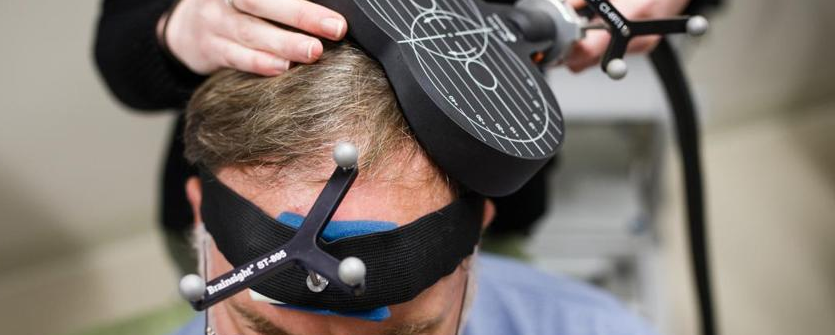TMS: The Nonpharmaceutical Treatment for Depression
Do you suffer from depression and are you on medications that don’t give you the control you’re looking for? TMS may be the right choice for you. Transcranial Magnetic Stimulation is a targeted pulse of magnetic field that specifically targets areas of the brain that have been shown to be underactive in those that suffer from depression. The magnetic field is very similar to what is used in an MRI machine. TMS offers relief from depression without the harmful side effects of pharmaceuticals.
According to the Journal of Psychiatry 40% of people taking antidepressants experience side effects with their medications and many of those find these side effects so bothersome that they discontinued treatment. TMS on the other hand is not a medication and the only reported side effect is a clicking noise, a tapping feeling, and mild pain around the treatment site during the procedure. However, these mild side effects usually only last through the first week of treatment.
The TMS procedure itself lasts about 35-40 minutes. A patient would sit in a comfy chair, a magnetic coil is placed on their head and magnetic pulses are systematically delivered to underactive areas of the brain, and the patient goes about their normal daily routine. Because there is no anesthetic necessary and the treatment is non-systemic, the patient can drive home, go to work or school, or any other normal activity immediately after treatment. TMS treatments are usually done 5 days a week for 4-6 weeks, although some patients may require treatment up to 12 weeks.
TMS has been an FDA approved treatment for depression since 2008. TMS has also been tested in multiple clinical trials showing significant improvement in at least half of all those studied with approximately 1 in 3 people achieving total relief of depression symptoms. Only 37% of patients required retreatment after their 6 month follow-up appointments. Additionally, TMS is now covered by most major health insurance companies such as Anthem Blue Cross, Blue Shield, HealthNet and others.
Depression is the leading cause of disability in America affecting an estimated 16.1 million people. It is estimated that as many as 4 million depression suffers do not experience relief from standard depression medications. These patients are typically prescribed supplemental medications but TMS treatment could be the appropriate alternative to these medications for some patients. Ideal candidates for TMS are on more than one medication for depression, are not experiencing relief with current treatment, experiencing excessive side effects from medications, and/or depression is adversely affecting your ability to work. Depression is an imbalance of the brain’s neurotransmitters and the effects of this can be absolutely debilitating and the sufferers of this illness need a safe and reliable treatment and TMS may just be the solution; contact a TMS physician to see if this treatment is right for you.
